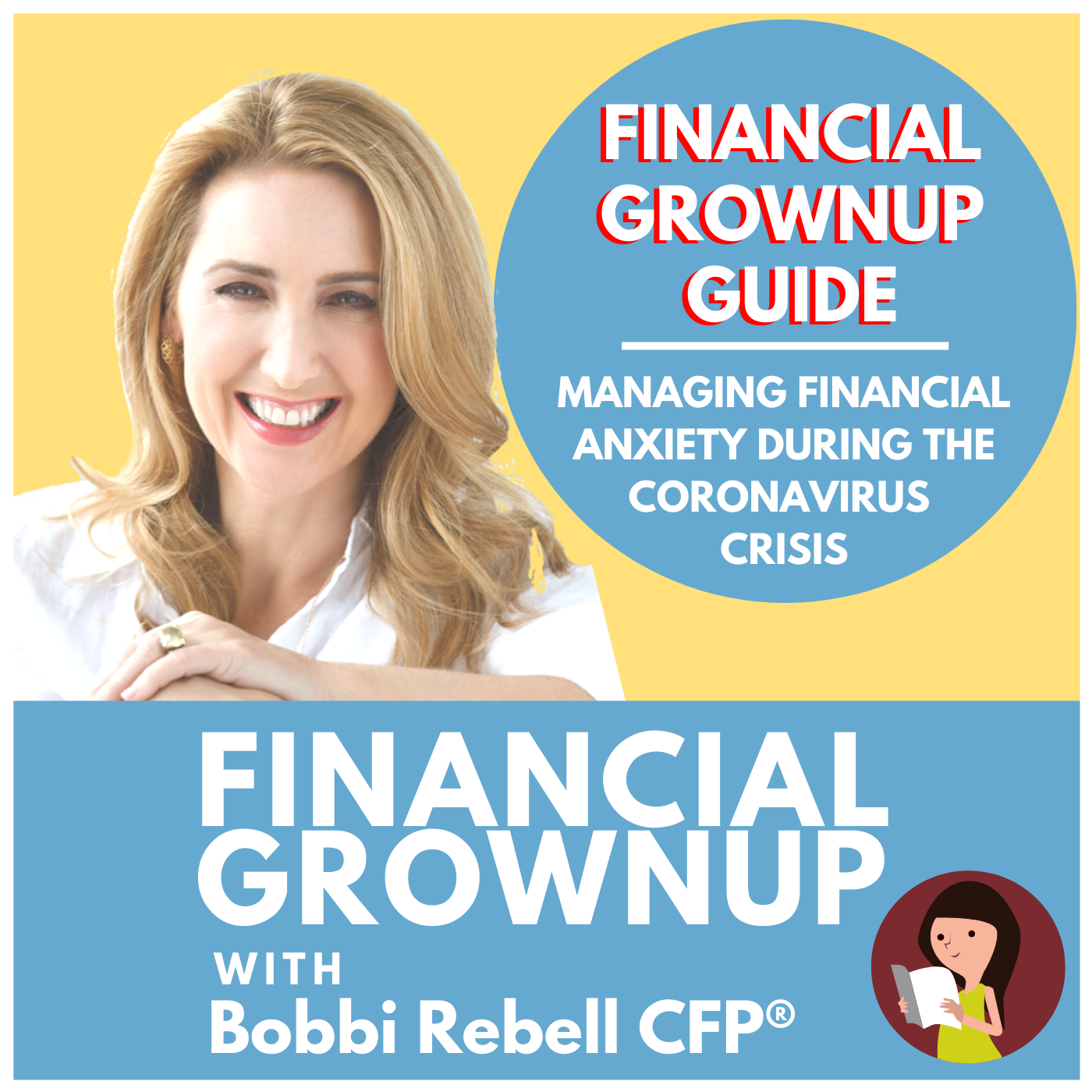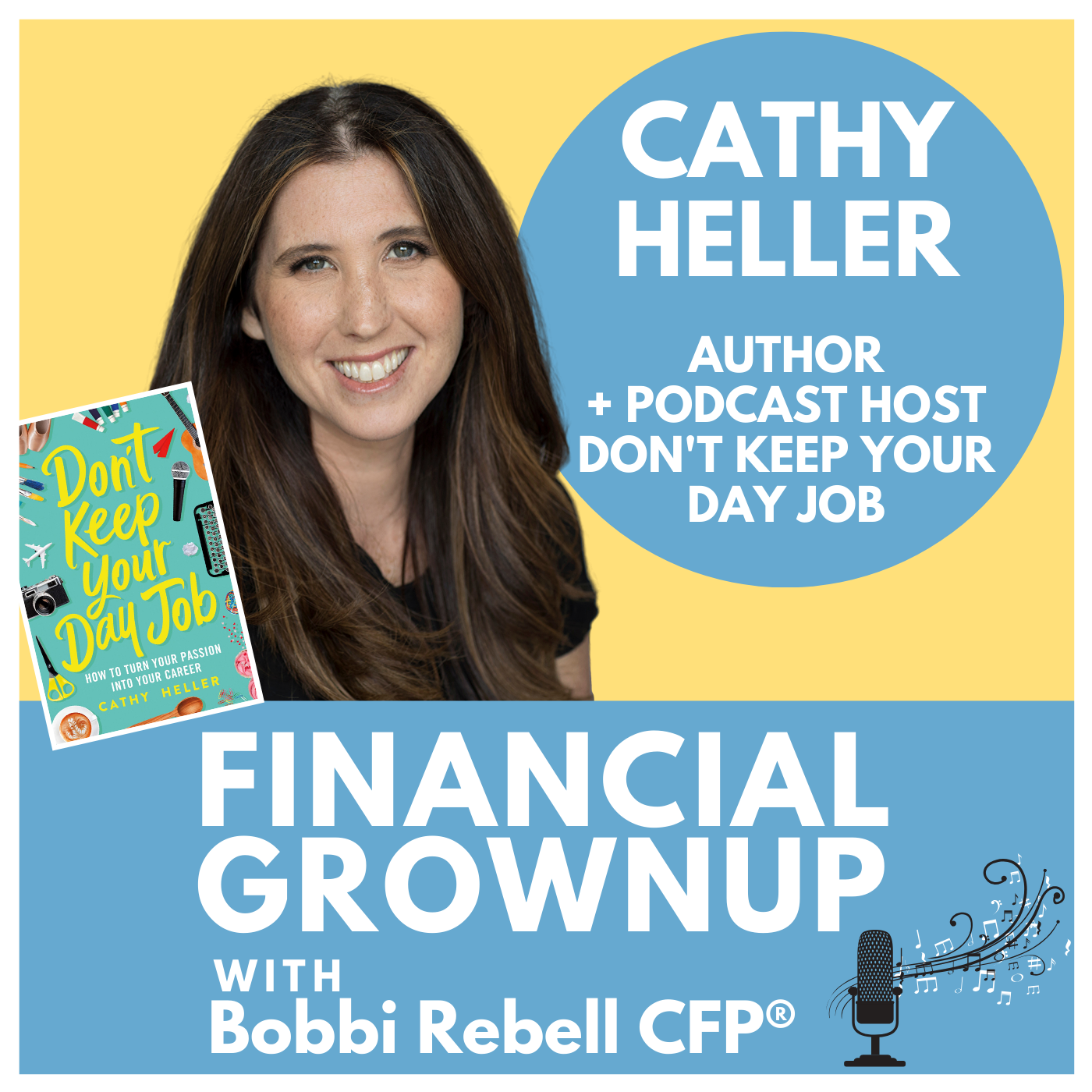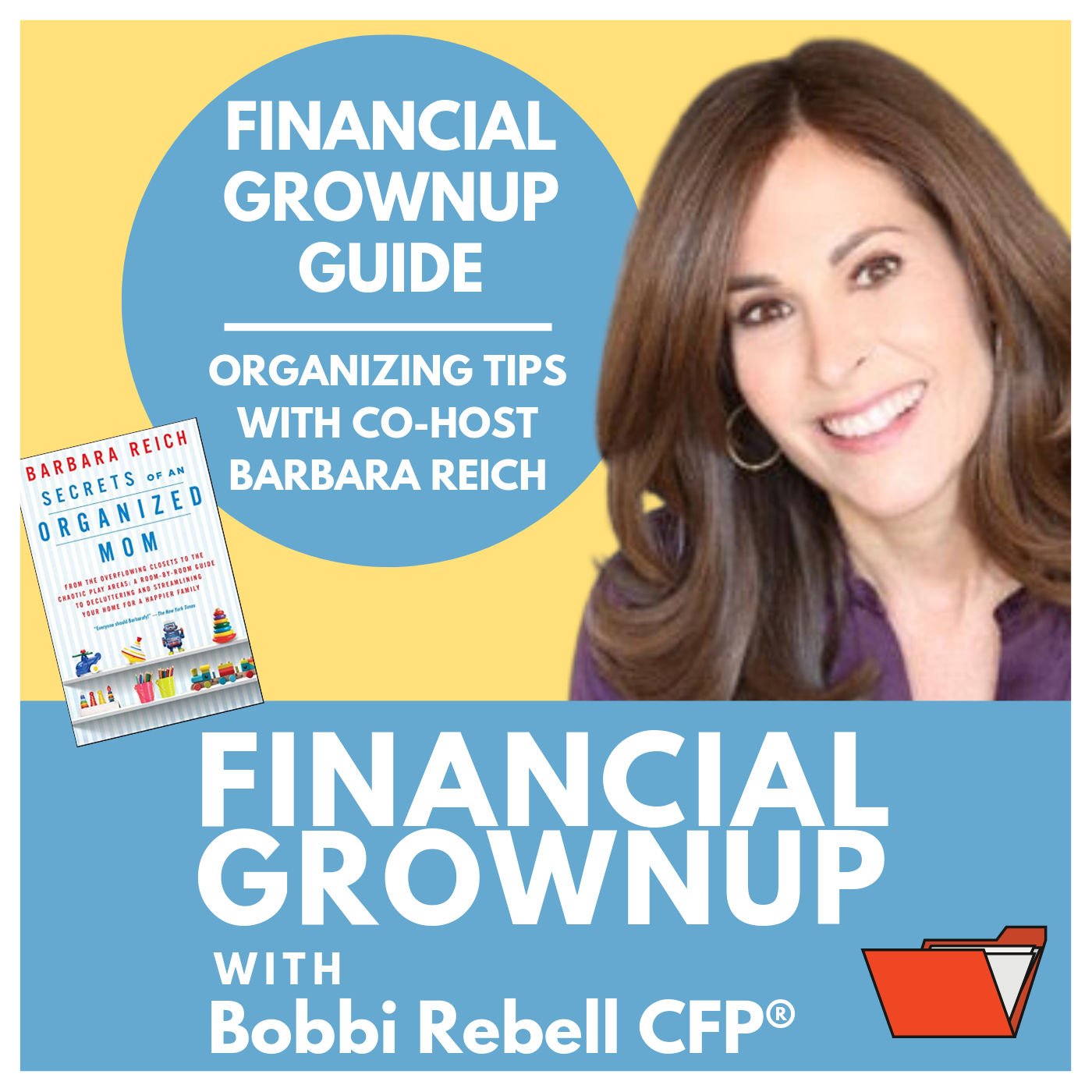A lot of us feel squeamish about selling but even movie stars have to sell their work. Ash Ambirge, author of The Middle Finger Project: Trash Your Imposter Syndrome and Live the Unf*ckwithable Life You Deserve shares her story of getting inspired by Brad Pitt to get past her fears and succeed at selling.
Ash’s Money Story:
Ash Ambirge:
When I was watching TV one day from my apartment in Santiago, Chile, where I was living at the time, an ad for Brad Pitt's new movie popped onto the TV. And there, this guy is like giving this big interview. He's all over the place. He's really excited about his new movie. He's telling Oprah or whoever, Ellen at the time, all about this thing that was coming up. And I looked at him and I thought, "Oh my God, even people like Brad Pitt need to promote their stuff. He's not exempt from this either. And look at him doing a fine and eloquent job."
Bobbi Rebell:
How did you translate that to yourself?
Ash Ambirge:
Yeah. So when you see Brad Pitt standing up and saying, "Hey everybody, so my new movie comes out on March 3rd and here's what it's about and I really hope you guys show up," you realize that the key to selling has nothing to do with selling, it has everything to do with enthusiasm. Brad Pitt was enthusiastic about his movie and I wanted to feel that way too about the stuff that I was selling.
Ash Ambirge:
And so I started switching my approach. Every single thing that I was doing, whether it was an event or not, I started telling everyone about with the utmost enthusiasm. Because when I believed in the things that I was creating and making, other people automatically felt like they could believe in it too. And it created this chain reaction. And a part of that was also understanding that I could no longer sell the things that I wasn't really enthusiastic about.
Bobbi Rebell:
Wow. So true, and yet we don't always really process things that way.
“Selling is always helping”
Ash’s Money Lesson:
Bobbi Rebell:
what is the lesson for our listeners from that story? How can people make it their own?
Ash Ambirge:
Whenever you go into any interaction, and it doesn't matter if you're an employee or you are a freelancer, you have to approach it from the perspective of an advisor. This is what I look at now and it's like, "Okay, hey person. Yes, I'm really excited. Here's the stuff that I'm doing. Here's how I think it could help you." Talk to them about what you actually have to offer in the most brightest and brilliant way you can muster, as opposed to looking at it like, oh, I'm just a lowly employee or a lowly freelancer and I'm here just to kind of take orders from people and wait and hope that they give me their money and hope that they see that I'm actually awesome.
Ash Ambirge:
Instead, you have to look at it like you're an advisor and you are here to just be the most enthusiastic you can about this thing that you are selling. And when you approach it with enthusiasm and like, "Hey, I'm just here to help, let's talk about how I can help you," it changes everything from feeling ick and salesy, to being like, "Oh my gosh, this person is my guardian angel. I'm so excited that their here." They will be thrilled to hear from you.
Bobbi Rebell:
And that shift in mindset is key because people can tell when you're selling versus helping them. There's a difference.
Ash Ambirge:
Yeah. Oh yeah. And that's it, selling is always helping. We always feel like we're bothering people, but if you genuinely set out to help somebody, it doesn't even matter if you're just great at makeup, if you are great at finances, whatever the thing is that you're great at, that's all you're doing. You're showing up and being like, "Hey, do you need my help?" That's it. It's simple. "Hey, do you want my help? I have this thing for sale. You can totally buy it. Let's do it."
“Enthusiasm is the greatest pitch there is”
Ash’s Money Tip:
Ash Ambirge:
It does have to do with hot dogs and Jersey. It's called the hot dog theory of money. The hot dog theory of money is to help you anytime you get all scared and intimidated when you are sitting there in your boss's office, or you are asking a client to give you more money, A, because hotdogs are hilarious, and B, because they really do simplify this and make it way less scary.
Ash Ambirge:
So if you were a vendor on the Jersey shore and you're out there selling hot dogs, and some guy comes up to you and is like, "Yo man, hey, how much for a hot dog," you are not going to hm and haw and get all nervous about stating the price of the hotdog, you're not going to say, "Well, since it's the first time that you're here, maybe we could work out a deal," or, I don't know, "Did you have a budget in mind for how much you wanted to spend?" None of that, because we understand intuitively that if we're actually a vendor selling a hotdog on the Jersey shore, the price is the price is the price for a reason. It includes all of the manufacturing costs, it includes the delivery, it includes the packaging, the branding, it includes my time sitting there just selling these hotdogs, and whatever other costs are involved.
Ash Ambirge:
And it also is going to include the person who owns the company. It's going to include their profit, and we never ever factor in our own profit and our own worth when it comes to asking for money. So, the next time you have to ask for it, think about it. You are just stating the price of a hot dog. That's it. This is what it costs, would you like to buy it?
Bobbi Rebell:
That just makes so much sense. And that's something that really was a huge turning point in your business because you were making mistakes early on, and then by having that mentality, you started to have firm prices and it changed everything.
Ash Ambirge:
It did. I used to work in advertising before I became a freelancer, and one of the things I learned from that was they would send us out with rate cards and the rate was the rate was the rate for the magazine. And it was very straight forward. So I adopted that posture when I walked into meetings with my own clients now and just said, "Hey, so here's how much it costs. Here's what it includes." It's so much less complicated than we make it in our heads. The price is the price is the price for a reason and that includes every single thing about you that you're bringing to the table, from your enthusiasm about your stuff, to the way that you package it, to all the stuff that you know. I mean, it is so worth it, but sometimes we may seem way harder than it is.
Bobbi Rebell:
Well, it's hard because we can be insecure about our own self-worth. And your book, one of the many things that I love about it is there's so much in there that can give us the confidence to be more secure and to be stronger in negotiations, and also in advocating for ourselves and for our businesses. One of my favorite quotes in the book, there's so many, but anyway, one of them is, "If you build it, they will come is basically for a jelly donut to magically appear in your hand."
Ash Ambirge:
Okay. Seriously. I mean, and for my listeners, this is the kind of stuff, but you're making a real point. It's just not going to happen if you just think they're going to come because you built it, right?
Bobbi Rebell:
Yeah.
Ash Ambirge:
But the key really goes back to enthusiasm. Like when you are enthusiastic about the thing you're selling, even if it's yourself and your talents, then great. And it just shows up naturally and you don't have to put all of this weird professionalism around it and all this weird like anxiety that happens. Like you're just there to help everybody.
Bobbi Rebell:
And speaking of that, one of my favorite quotes is, "Enthusiasm is the greatest pitch there is," because of just what you said. If you love something and you believe in it and you believe that it's going to help the person who might potentially buy it, that's a much stronger sell.
Ash Ambirge:
It's a much stronger sale. And I've sold myself to companies that way as an employee and as a freelancer, no matter what it is. That's what they love about working with people because no one ever hired anyone to be unhelpful, right? So if you can demonstrate that you are here to legitimately help them, that's wonderful. And then they can figure out how to teach you the on the job stuff that they need to know. Enthusiasm is so underrated.
Bobbi Rebell:
Yeah. And a lot of us get tempted to offer to do things for free just to prove ourselves. But another one of the quotes that I love is, "Charging money is a sign they can take your offer seriously."
Ash Ambirge:
Yes. And so is showing up consistently for yourself in whatever form, and following up with those clients in some kind of a very systematic way shows them that you take their business seriously and they can trust you. Because there's nothing worse than some guy who's like, "Hey I can help you with your SEO for your website." And then he's like, "Hey, just give me admin access to your site," and doesn't do any kind of like contract or have any kind of process. Having those processes in place and actually sending out those kinds of things and charging fair good money is a sign the client can trust you.
“Charging good, fair money is a sign the client can trust you”
Bobbi’s Financial Grownup Tips:
Financial Grownup Tip #1:
You can find inspiration everywhere. Brad Pitt, not the first person you think of when it comes to business necessarily, and he didn't come from a privileged background. Brad Pitt did not go to a fancy college and he isn't even officially in the sales business, except he is, and to a large degree, we all are. Even if you are just even applying for a new job or trying to get a new client, you're selling yourself as a solution to their problem. That's the job to fill.
Financial Grownup Tip #2:
With all of us working from home these days, there is a temptation to go super casual. And in some cases, that can work, but Ash talks about processes, having set prices and being professional, running a business, a professional business. People take you seriously then. Let's not forget that you still need to be on time. You still need to look neat and professional, even if it's a little bit more casual. You want to follow up efficiently just like you would if you were getting up and going to an office. If you want somebody to give you money, don't forget her advice. You need to be enthusiastic, even as hard as it may be with everything going on these days.
Episode Links:
Ash’s website - www.themiddlefingerproject.org
Ash’s Book - The Middle Finger Project
Follow Ash!
Twitter - @TMFproject
Facebook - @TMFproject
Instagram - @the.middle.finger.project
Some of the links in this post are affiliate links. This means if you click on the link and purchase the item, I will receive an affiliate commission at no extra cost to you. All opinions remain my own.









































